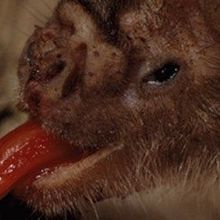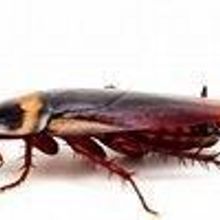taste

Stay Salty: Maternal Diet Affects an Offspring’s Neuronal Taste Circuit
Shelby Bradford, PhD | Mar 6, 2024 | 3 min read
Low salt intake during pregnancy in mice influences the pruning of extra synapses of the taste circuit later in life.

Why Does Everything Taste Like Chicken?
Laura Tran, PhD | Dec 1, 2023 | 2 min read
With an appetite for answers, scientists get to the meat of why some unusual foods taste like our favorite fowl.

How the Gut Differentiates Artificial Sweeteners from Sugars
Chloe Tenn | Jan 21, 2022 | 5 min read
Signals from sweeteners and sugars are relayed from the gut to the brain by different neural pathways, a new study concludes.

Umami Taste Receptor Evolved with Primates’ Diets
Abby Olena, PhD | Sep 6, 2021 | 4 min read
A study suggests that mutations in the gene that encodes the T1R1/T1R3 taste receptor allowed primates that relied on insects for protein to transition to eating leaves and fruit.

Neurons for Taste Loosely Distributed in Mouse Gustatory Cortex
Jef Akst | Mar 1, 2021 | 2 min read
Neurological representations of different tastes—like those of different smells but unlike those of sight, hearing, and touch—do not cluster in distinct spots within a murine brain region, a study shows.

Loss of Smell, Taste May Be Reliable Predictor of COVID-19: Study
Ashley Yeager | May 12, 2020 | 3 min read
Data from a crowdsourcing smartphone app is helping to track the spread of the disease in real time and reveals the symptom as the number one indicator of infection.

Proton Channel for Sensing Sour Taste Identified in Mice
Emily Makowski | Sep 19, 2019 | 4 min read
Otopetrin-1 was previously only known for its role in the inner ear, but it turns out it also forms a pH-detecting pore in the tongue’s sour taste receptors.

Researchers Identify Gene Variants Linked to Synesthesia
Catherine Offord | Mar 5, 2018 | 2 min read
A whole-genome analysis of people who experience color when they listen to sounds points to a handful of genes involved in neural development.

Why I Had My Sense of Flavor Genotyped
Bob Holmes | May 1, 2017 | 3 min read
One person’s quest to get to the bottom of the unique way he experiences food

Contributors
Diana Kwon | May 1, 2017 | 4 min read
Meet some of the people featured in the May 2017 issue of The Scientist.

Book Excerpt from Flavor
Bob Holmes | Apr 30, 2017 | 4 min read
Author Bob Holmes dove into the taste-determining realm of his genome.

What Sensory Receptors Do Outside of Sense Organs
Sandeep Ravindran | Sep 1, 2016 | 10+ min read
Odor, taste, and light receptors are present in many different parts of the body, and they have surprisingly diverse functions.

Odor, Taste, and Light Receptors in Unusual Locations
Sandeep Ravindran | Aug 31, 2016 | 2 min read
From the gut and airways to the blood, muscle, and skin, diverse sensory receptors are doing unconventional things.

Flavor Savors
Jyoti Madhusoodanan | Jan 1, 2016 | 4 min read
Odors experienced via the mouth are essential to our sense of taste.

Lack of Taste
Tracy Vence | Feb 17, 2015 | 1 min read
Scientists pinpoint how penguins may have lost their ability to sense sweet, umami, and bitter flavors.

How a Memory Is Made
Molly Sharlach | Nov 13, 2014 | 3 min read
Transcription factor levels dictate which neurons in a network store a memory.

How Hummingbirds Taste Nectar
Ruth Williams | Aug 21, 2014 | 3 min read
Hummingbirds perceive sweetness through a receptor with which other vertebrates taste savory foods.

Vampire Bats Lack Bitter Taste
Jef Akst | Jun 25, 2014 | 2 min read
With a diet of blood, the flying mammals have largely lost the ability to taste bitter flavors.

Roach Motel Vacancies Explained
Ruth Williams | May 23, 2013 | 3 min read
Scientists discover why certain cockroaches avoid eating insecticide-containing sugary bait.
